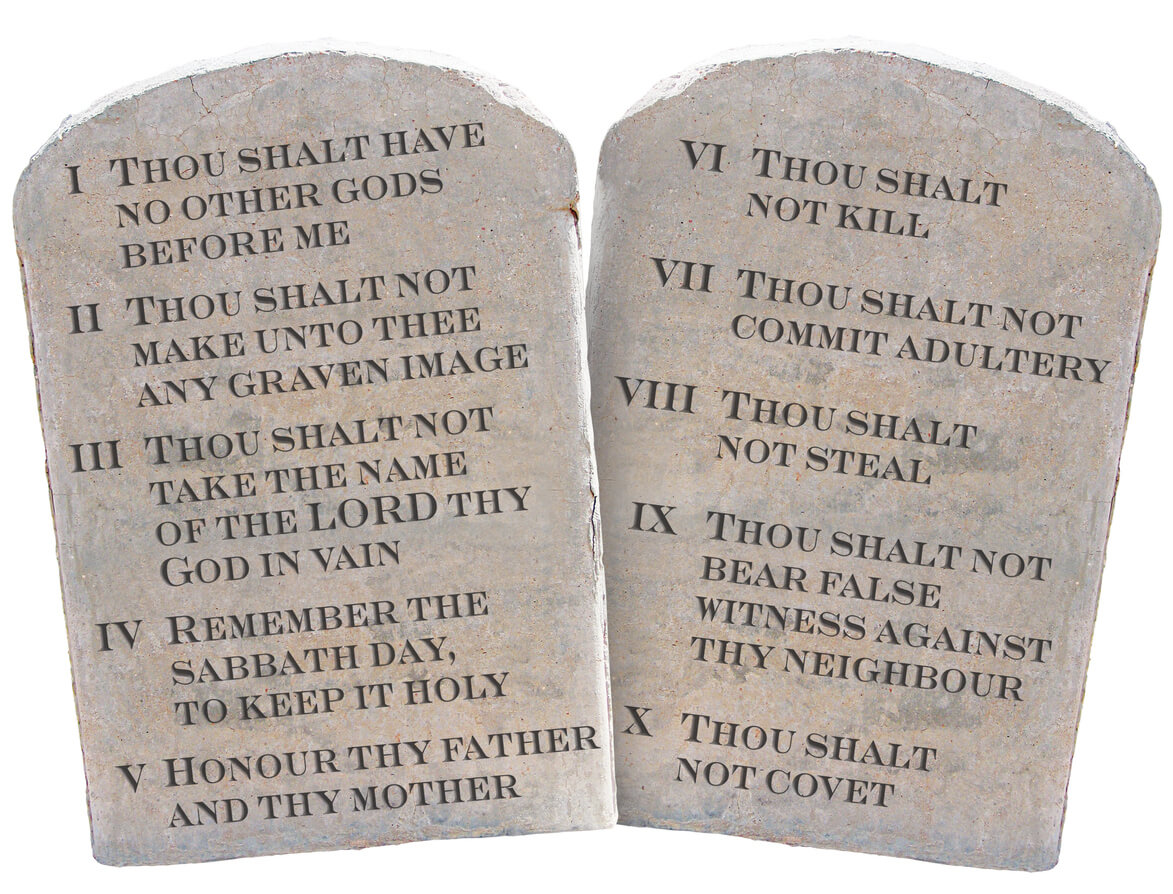Is a Texas bill requiring the Ten Commandments in public schools bad for the state’s Jews?
An organization dedicated to the separation of church and state says yes

A civil liberties group has condemned a Texas bill that would require the Ten Commandments to be displayed in all public elementary and high school classrooms. Photo by duckycards/iStock
Texas legislation that would make it mandatory for public schools to display the Ten Commandments would only harm Jewish students, despite the commandments’ origins in the Torah, according to a nonprofit dedicated to the separation of church and state.
Bill 1515 passed by a vote of 17-12 in the Texas state Senate on Thursday. The bill would require that “a durable poster or framed copy of the Ten Commandments” be placed “in a conspicuous place in each classroom” of all public elementary and high schools.
But according to Americans United for Separation of Church and State, the bill is not only unconstitutional, but is part of a strategy to alienate Jewish, Muslim, atheist and other non-Christian students in order to serve a Christian Nationalist agenda.
“What we are seeing right now is a surge of white Christian nationalism, being pushed in state legislatures all around the country,” AU’s vice-president of strategic communications Andrew Seidel told the Forward. “And the goal of white Christian nationalism is to legally privilege conservative, white, heterosexual Christian men at the expense of everybody else. This series of bills that they are proposing is very clearly an attempt to codify white Christian nationalism into the Texas law. White Christian nationalism is a threat to anybody who does not fit into that group.”
Representatives for several Texas Jewish Federations were not available for comment.
While the bill has passed through the Senate, it must still be approved by the state’s House of Representatives and be signed by Gov. Greg Abbott.
According to The Texas Tribune, the senator who introduced the bill, Phil King, defended it by saying it will “remind students all across Texas of the importance of the fundamental foundation of America.”
On the same day, the Senate approved another bill that would require schools to make time and space available for all students and staff who wish to pray or read the Bible. In a statement, Lt. Gov. Dan Patrick called the bill “one step we can take to make sure that all Texans have the right to freely express their sincerely held religious beliefs.”
My Statement on the Passage of Senate Bills 1396 and 1515 – Bringing the Ten Commandments and Prayer Back to our Schools: https://t.co/oj756h7saP#txlege pic.twitter.com/RANN6ykVi3
— Office of the Lieutenant Governor Dan Patrick (@LtGovTX) April 20, 2023
But Seidel said the bills will actually stifle freedom of religion in Texas.
“Every student in public school right now has freedom of religion; they’re able to pray in whatever way they see fit,” he said. “But what we’re talking about in these bills is allowing the state to impose their version or recommend their version of religion on students.”
In a letter sent by Americans United to Texas lawmakers, it was pointed out that in the 1980 U.S. Supreme Court case Stone v. Graham, it was ruled that displaying the commandments is unquestionably religious in nature, does not serve any educational function and is a violation of the U.S. Constitution.
While it seems likely that civil liberties groups will challenge the legislation in court, Seidel said he believes the groups and politicians pushing in support of them are counting on a conservative majority in the Supreme Court to uphold the legislation.
But he said there’s reason for optimism, citing a ruling written by Justice Neil Gorsuch, a conservative, in a similar case in which he wrote that prayer led by school employees is “coercive.”
















